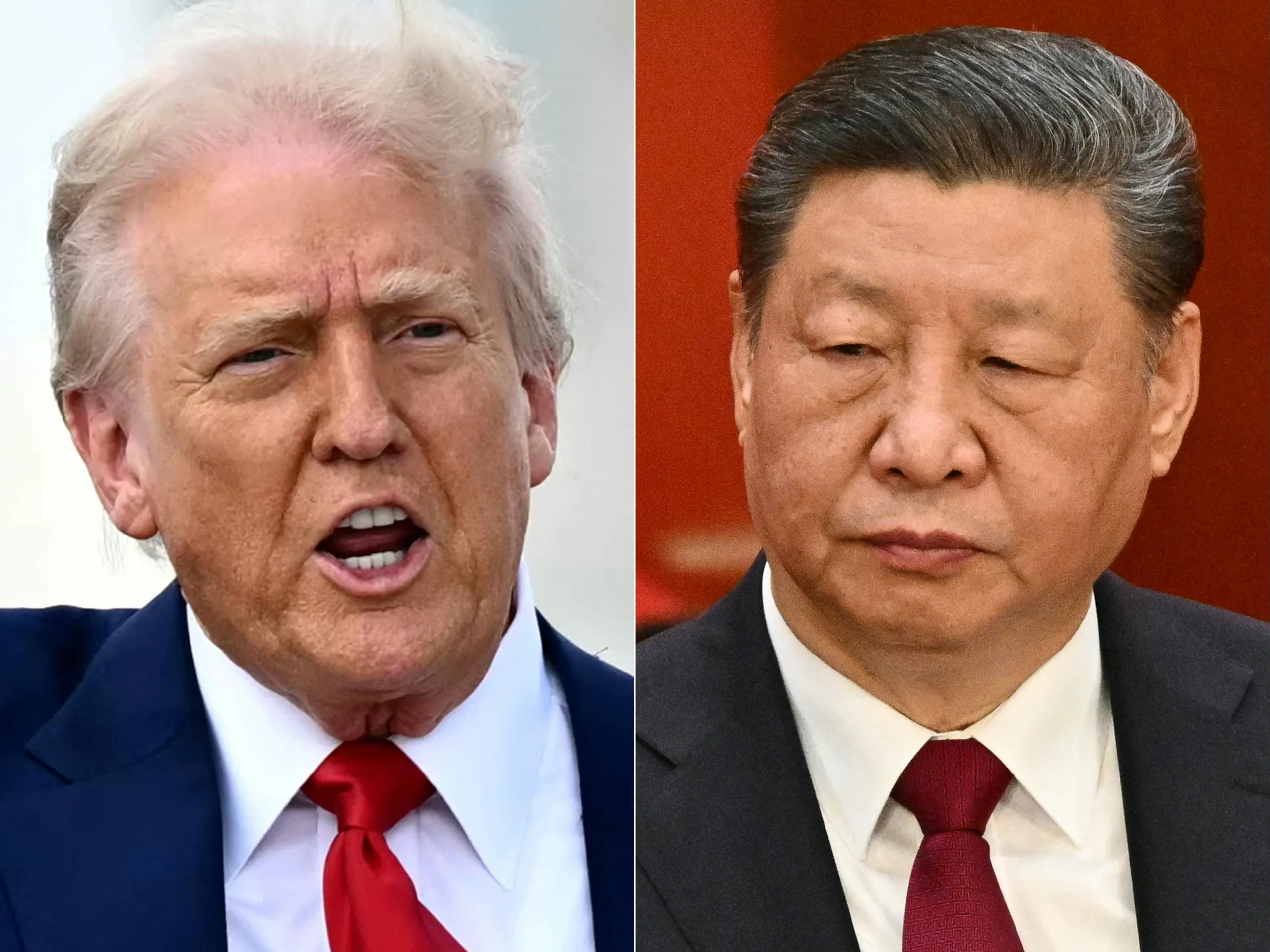
The escalating trade war between US President Donald Trump and Chinese President Xi Jinping has rattled global markets, leaving many wondering which leader will back down first.
Trump has imposed a massive 145-percent tariff on Chinese imports, with China retaliating with a 125-percent duty. On Tuesday, Trump ordered a national security review of critical mineral imports, mostly sourced from China. Meanwhile, Bloomberg reported China directed its airlines to halt Boeing jet deliveries and stop purchasing aircraft parts from US companies, while Hong Kong’s postal service suspended US-bound mail.
“A 145-percent tariff will make it impossible for China to sell to the US – the costs on both economies will be exceptionally high,” said Vina Nadjibulla from the Asia Pacific Foundation of Canada. “A complete decoupling is almost impossible to contemplate.”
Experts question whether Trump’s administration has clear objectives beyond his long-standing accusations that China exploits the US on trade. Harry Broadman, a former US assistant trade representative, noted the ambiguity: “It’s not clear whether Trump wants to close the trade deficit with China or end business with the country outright.”
Broadman characterized Trump’s approach as simplistic: “He’s obviously a deals guy in real estate, but not international markets… He’s not interested in splitting the spoils.”
The White House maintains China must initiate negotiations, with press secretary Karoline Leavitt quoting Trump: “The ball is in China’s court. China needs to make a deal with us, we don’t have to make a deal with them.”
Despite America’s relatively stronger economic position, analysts suggest China has been preparing for this conflict since Trump’s first term. “The Trump administration has miscalculated that China would quickly come to the negotiating table,” said Dexter Tiff Roberts of the Atlantic Council’s Global China Hub.
China has been diversifying away from US trade for years. In 2024, US-bound exports represented 14.7 percent of China’s total, down from 19.2 percent in 2018. Xi recently began a Southeast Asia tour promoting China as a champion of free trade and reliable regional partner.
Political considerations also factor into China’s response. Xi has cultivated a strong-man image that would be damaged by quickly yielding to US demands.
Robert Rogowsky, professor at the Middlebury Institute, predicts Trump will relent first: “Trump has this misguided obsession with tariffs and he blinks because he comes under pressure from special interests.” The administration has already announced technology import exemptions from the China tariff and suggested auto tariff exemptions may follow.
Wei Liang, a trade expert, contrasts Trump’s approach with Biden’s: “Biden’s focus on China was strategic and with its allies, but Trump is alienating everyone.” She suggests that while most countries lack alternatives to the US currently, they may develop “US+1” strategies as America’s reliability diminishes.











Be the first to leave a comment